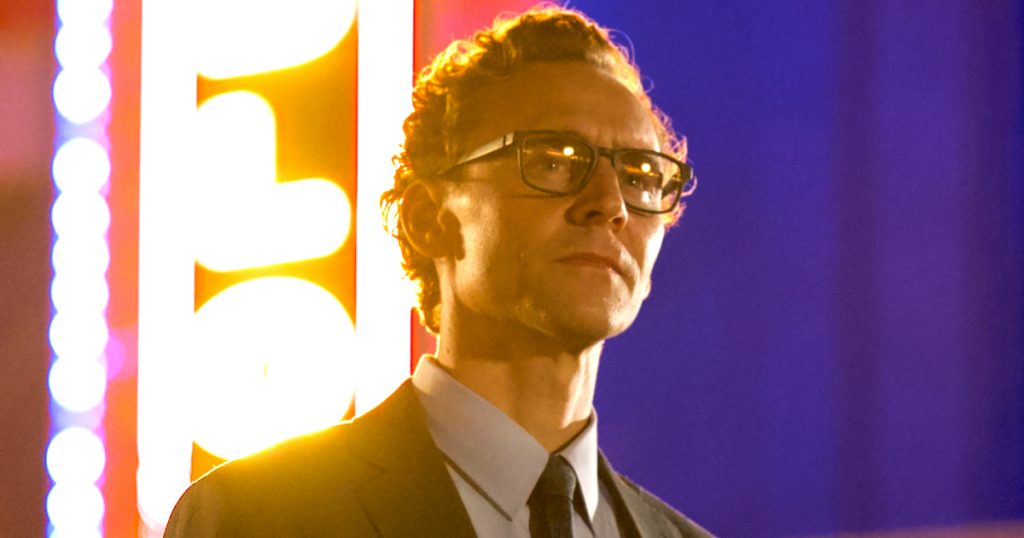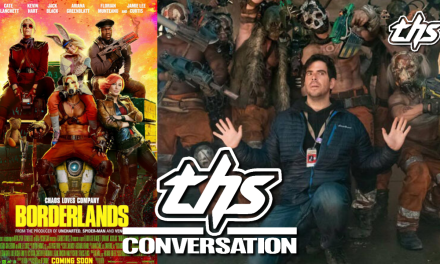The core of Mike Flanagan’s latest Stephen King adaptation, The Life of Chuck, centers around the value of a life. It’s a particularly poignant time to explore these sorts of questions, given the times we live in. Each day seems to bring new, fresh hells in systems so large–political, economic, ecological–that it’s easy to feel like a guppy trying to stay afloat in the wake of a blue whale. It’s so easy to feel so small, sliding all too easily into the thought “do I even matter?” Flanagan’s best works regularly find thoughtful ways to explore complicated themes in dramatically lively ways, as shown in series like Midnight Mass as well as films like Doctor Sleep, and The Life of Chuck is no different. It’s a vibrant, brilliant turn from Flanagan, and easily one of the best films of the year so far.

Adapting the story of the same name from Stephen King’s four novellas collected in If It Bleeds, the film pivots around two thoughts. Relatively early on, the film relays Carl Sagan’s metaphor of the “cosmic calendar,” a reminder of how new humanity is in the scheme of the universe. That metaphor is juxtaposed somewhat against Walt Whitman’s “Song of Myself” musing that “I am large, I contain multiudes,” as beautifully explained by young Chuck’s teacher (played beautifully albeit briefly by Kate Siegel). How Whitman’s “barbaric yawp” against cosmic indifference is utilized won’t be explored here, but it’s a beautifully written and intricate set of life-affirming linkages that joyfully remind us of the value of a life. The script is, at times, a little on-the-nose and heavy-handed with its thematic elements, but it’s overall handled with a warm vibrancy that makes for a wonderful watch.
Unusual Structure Gives ‘The Life of Chuck’ Mystery and Vitality
The film’s reversed chronology begins with “Act Three,” set within a small town in a world that’s clearly ending. The internet is on its last legs, California’s “Big One” has sent the beautiful state into the sea, climate change has decimated… well, everything, and suicides have skyrocketed. Amid this chaos is Marty (a spectacular, warm, and stoic Chiwetel Ejiofor), an earnest teacher trying to his hardest to persuade parents and students alike that learning matters in a futureless world. Everything is falling dreadfully apart minus one: an ubiquitous set of ads thanking a friendly man named Charles “Chuck” Kranz, who no one seems to know, (“Thanks, Chuck!”) for “39 great years.” As Marty makes his way through the apocalypse to reconnect with his ex, Felicia (Karen Gillan), everything but the ads fall away, cue Act Two, “Buskers Forever.”
In Act Two we finally meet Chuck (Tom Hiddleston), a professionally dressed bank employee whose hectic walk is delayed when he’s caught by the drum rhythms of a nearby busker (Taylor Gordon). Chuck drops everything to smoothly slide and dance to the beat, in flow with the street drummer before being joined in dance by a stranger, the heartbroken girl Lauren (Annalise Basso).
The pair have a vibrant spontaneous shindig, a crowd gathering, in a wonderfully expressive exhibition of spontaneous joy between strangers. Hiddleston is exceptional here, his charisma in full flourish, though a little more time with his adult Chuck would be welcome. Act Three, “I Contain Multitudes,” provides the narrative thread connecting the other stories, following the timid and young Chuck’s love of dance, his ever-practical grandfather (Mark Hamill) persuading him to forgo dance for a practical life, and the boy’s look at a locked attic whose secrets one should never, ever see (back to a segment that feels like Stephen King proper).
‘The Life of Chuck’ Is A Brilliant Reminder To Live Life Fully
Perhaps the biggest weakness in The Life of Chuck is that the three substories are a little uneven in impact. Act Three, the film’s beginning, is a haunting and surreal opener. It’s somber, sure, but Ejiofor packs an incredible amount of humanity and measured emotion into it. Act Two is a marked tonal contrast, Hiddleston is electric, and the dance number is choreographed and executed with flair and subtle meaning.
Act One does pack a punch when one discovers what’s in the attic and the meaning it brings to the rest of the narrative, but some of the characters and set pieces are less memorable than what’s come before. It’s still a decent act with strong performances, but it’s hard not to leave wanting a little more time with Hiddleston’s Chuck. Perhaps, oddly enough, that’s the point–people are beautiful and life is fleeting. Even still, it doesn’t necessarily provide the strongest note to end on.

A little unevenness aside, The Life of Chuck is a beautiful reminder that life is short and we should live it to the fullest. Surreal setpieces are landed with flair, life and death are handled with equal reverence, and it’s anchored by a set of brilliant performances, Hiddleston and Ejiofor top notch among them. It’s a beautiful and existence-affirming tale from Flanagan, executed with strong technical precision. It easily ranks among the best Stephen King adaptations yet, and a few issues aside, it’s one of the year’s best films so far.
For more Reviews, make sure to check back to That Hashtag Show.

![‘The Life of Chuck’ – Mike Flanagan’s Latest Brings The Joy [Review]](https://www.thsstaging.txend.com/wp-content/uploads/2025/06/e2d90b16-c75e-4502-8fe3-cfbdd43c6914-1280x640.jpg)


![The Walking Dead: World Beyond – Foothold [Review]](https://www.thsstaging.txend.com/wp-content/uploads/2021/10/project_20211010_2327304-01-440x264.png)
